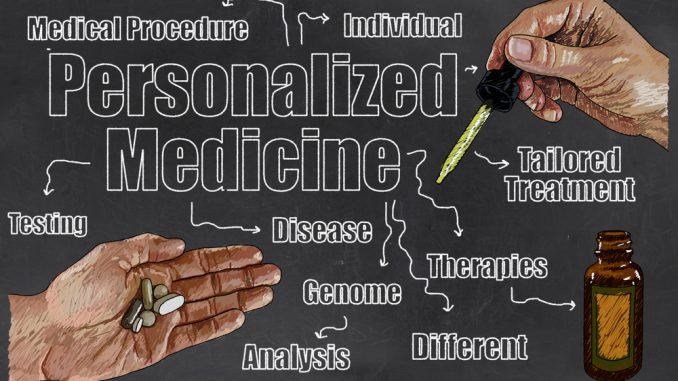
Introduction
In recent years, the field of medicine has witnessed a revolution that promises to change the way we approach healthcare: personalized medicine. This innovative approach aims to provide treatments tailored specifically to an individual’s unique genetic makeup, offering a more precise and effective way to manage diseases and improve overall health. This article delves into the concept of personalized medicine, its potential benefits, and the challenges it faces in becoming a widespread reality.
Understanding Personalized Medicine
Personalized medicine, also known as precision medicine or genomic medicine, is a cutting-edge healthcare approach that takes into account a person’s genetic information when making treatment decisions. Unlike the one-size-fits-all approach traditionally used in medicine, personalized medicine recognizes that each individual’s genetic makeup plays a significant role in determining their susceptibility to diseases, their response to treatments, and their overall health.
The Human Genome Project, completed in 2003, marked a pivotal moment in personalized medicine’s development. This international effort mapped out the entire human genome, providing researchers and healthcare professionals with a comprehensive understanding of the genetic variations that make each person unique. Armed with this knowledge, scientists can now identify specific genetic markers associated with various diseases, allowing for more accurate diagnosis and tailored treatment plans.
Benefits of Personalized Medicine
Improved Treatment Efficacy: Personalized medicine enables healthcare providers to select treatments that are more likely to work for a particular patient based on their genetic profile. This leads to better treatment outcomes and reduces the likelihood of adverse effects.
Targeted Therapies: Personalized medicine has revolutionized the development of targeted therapies, which are drugs designed to specifically target the underlying genetic causes of a disease. These treatments are often more effective and less toxic than traditional treatments.
Early Disease Detection: Genetic testing can identify individuals at higher risk for certain diseases, allowing for early intervention and preventive measures to reduce disease progression.
Minimized Side Effects: By tailoring treatment to an individual’s genetics, personalized medicine can help reduce the risk of adverse reactions, ensuring a higher quality of life for patients.
Customized Dosages: Personalized medicine also considers an individual’s metabolism and how they process medications, allowing for precise dosage adjustments to optimize treatment effectiveness.
Challenges and Considerations
While the promise of personalized medicine is immense, several challenges must be overcome to make it a standard practice:
Data Privacy: The collection and storage of sensitive genetic information raise concerns about data privacy and security. Ensuring the protection of patient data is essential for the widespread adoption of personalized medicine.
Cost: Genetic testing and personalized treatments can be expensive, limiting access for some individuals. Reducing costs and increasing insurance coverage will be crucial for making personalized medicine accessible to all.
Ethical Issues: There are ethical concerns surrounding the use of genetic information, including potential discrimination in employment and insurance, as well as questions about consent and ownership of genetic data.
Limited Knowledge: Despite significant advancements, our understanding of the human genome and its relationship to disease is still evolving. Continued research is necessary to expand the scope of personalized medicine.
Conclusion
Personalized medicine holds the promise of revolutionizing healthcare by tailoring treatments to an individual’s genetic blueprint. As our understanding of genetics continues to advance, the potential benefits of personalized medicine become increasingly evident. However, it is essential to address the challenges associated with data privacy, cost, and ethics to ensure that personalized medicine becomes a reality for all, ultimately leading to improved health outcomes and a more effective healthcare system. As this field continues to grow, it offers hope for a future where medical treatments are as unique as the individuals they serve, providing a higher quality of life for patients and reducing the burden of disease worldwide.